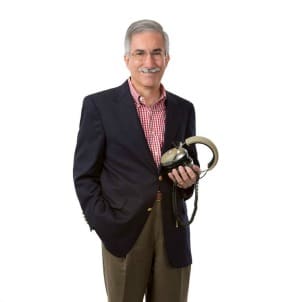
(by John Garziglia) FCC Chairman Wheeler announced his resignation effective Inauguration Day. Commissioners Rosenworcel, Pai and O’Rielly immediately issued laudatory statements.
On the same day in an unrelated Public Notice, the FCC announced it was finally willing to consider bringing its EEO recruitment policies into the 21st Century by allowing broadcasters when conducting outreach for new job openings to rely upon Internet web recruitment sources, coupled with on-air advertising.
Chairman Wheeler’s Inaugural Day resignation will likely leave the FCC with a 2-1 Republican majority and an interim chair appointed by the new President once in office. Commissioner Rosenworcel’s term is up. Commissioner Clyburn will be the lone Democrat unless she resigns (she has denied an intention to do so), which would leave the FCC without a quorum.
Although certainly coincidental, it is fitting that the same day Chairman Wheeler announced his resignation, the FCC took the first step to change one of its most archaic broadcast station rules. The earth has shifted in how job seekers and employers seek out employees. The FCC’s EEO requirements, however, continued to insist that a broadcast station’s wide outreach could not rely upon two of the most effective ways today of attracting new employees – internet website job postings, and over-the-air announcements. That is so 20th century in our era of smartphones and public internet terminals in every library!
So, with a first hint of modernizing EEO outreach regulations under a new administration, maybe now is the time for radio broadcasters to draw up a wish list of FCC rules that have outlived their usefulness?
Examples might include the main studio rule when no one in our mobile phone/twitter/Facebook/email age visits a radio station studio to contact radio station management.
Another example might be the public file rule requiring quarterly issues/programs lists. These lists, at best, have questionable utility in assessing whether a broadcast station has served the public interest.
The FM translator interference rule was adopted decades ago for distant translators prior to FM translators bringing reliable AM service and diverse HD sub-channel programming to in-contour audiences. The FM translator interference rule arguably contravenes the Communications Act by perverting the “fair, efficient, and equitable distribution” provisions of Section 307(b) in unfairly, inefficiently and inequitably favoring the extension of a distant station’s weak FM signal past its protected contour to vast areas, to the disfavor of tens of thousands of in-contour FM translator listeners.
If playing a game over the holidays of “which FCC rule would I eliminate” sounds like a productive use of time, anyone can file a petition for rulemaking with the FCC. Indeed, FCC petitions for rule making, or petitions advocating the elimination of rules, can be filed online. Once the FCC has a 2-1 GOP majority after Inauguration Day, we may find an eager propensity to eliminate outdated and outmoded broadcast station rules. It is not too early to now propose which FCC rules merit demolition.
John F. Garziglia is a Communications Law Attorney with Womble Carlyle Sandridge & Rice in Washington, DC and can be reached at (202) 857-4455. or [email protected]






I see all sorts of changes coming under the new administration, and in the long run, I see them further decimating the industry. Fewer owners, bigger debts, fewer employees, less originality, less creativity, less innovation, many fewer listeners, but higher incomes for top management. Before the last round of ownership deregulation, it was widely said that owning a radio station was like having a license to print money. Since then, things have changed; just two radio owners have debts totaling more than $25 billion. Why? Because consolidation is GOOD for radio, so, let’s do it again, and throw newspapers in to the mix, now, too!